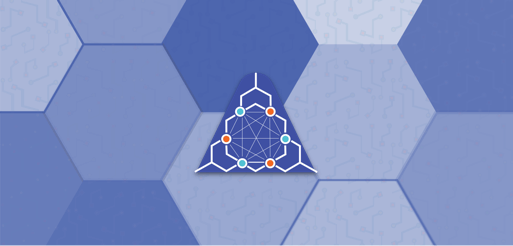
Anthill Inside 2018
On the current state of academic research, practice and development regarding Deep Learning and Artificial Intelligence.
Jul 2018
23 Mon
24 Tue
25 Wed 08:45 AM – 05:25 PM IST
26 Thu
27 Fri
28 Sat
29 Sun

On the current state of academic research, practice and development regarding Deep Learning and Artificial Intelligence.
Jul 2018
23 Mon
24 Tue
25 Wed 08:45 AM – 05:25 PM IST
26 Thu
27 Fri
28 Sat
29 Sun
Upendra Singh
@upendrasingh
Submitted Apr 26, 2018
An organization’s data is like a living organism - growing, expanding and evolving over time to form complicated and connected systems. This is similar to biological evolution, where life forms evolved from simple unicellular structures to more and more complex multicellular organisms. And as organizations compile more and more data, it is crucial for them to understand that the value of any data point multiplies only when it can be connected to other data points. So the question they need to ask themselves is ‘Do our current analytics platforms prioritize these data points and its various interrelations?’
To ensure the organization’s needs are met, the data model built for persisting and processing data must support the representation of the relationships both at a logical and persistence level. This is where a Graph based modelling system helps in resolving most of the issues expressed, allowing the query and processing system to leverage data in the best possible way.
So, this talk will describe graph based data modelling and analytics as a means to help organizations figure out the various nuances and hidden elements within their current data models. It will also delve into the various techniques and approaches that will enable them to leverage these data systems. It will cover key questions that organizations typically face: Why should they move to Graph based data modelling? When do they need to start migrating to the Graph paradigm? And How to do this transformation to build analytics from simple aggregations to complex machine learning based analytics?
This talk will describe graph based data modelling and analytics as a means to help organizations figure out the various nuances and hidden elements within their current data models. It will also delve into the various techniques and approaches that will enable them to leverage these data systems. It will cover key questions that organizations typically face: Why should they move to Graph based data modelling? When do they need to start migrating to the Graph paradigm? And How to do this transformation to build analytics from simple aggregations to complex machine learning based analytics?
Upendra Singh is a Lead Big Data Architect at Clustr, working as full stack big data {architect,scientist} and machine learning engineer with a strong base in data engineering and distributed systems development. He comes with over 10 years of experience in building production grade large scale machine learning systems which have been integrated in existing systems. He is adept at building data pipelines for various analytics and data processing use cases. His expertise lies in converting Business Problems into Analytics Solutions, designing the core and assessing the feasibility of Analytics Solutions.
Upendra has a Master’s Degree in Computer Science from Motilal Nehru National Institute Of Technology and a Bachelor’s Degree from Punjab University. Prior to Clustr, he has worked with technology leaders such as Robert Bosch, Dell R&D India and Dell EMC.
Jul 2018
23 Mon
24 Tue
25 Wed 08:45 AM – 05:25 PM IST
26 Thu
27 Fri
28 Sat
29 Sun
Hosted by
{{ gettext('Login to leave a comment') }}
{{ gettext('Post a comment…') }}{{ errorMsg }}
{{ gettext('No comments posted yet') }}